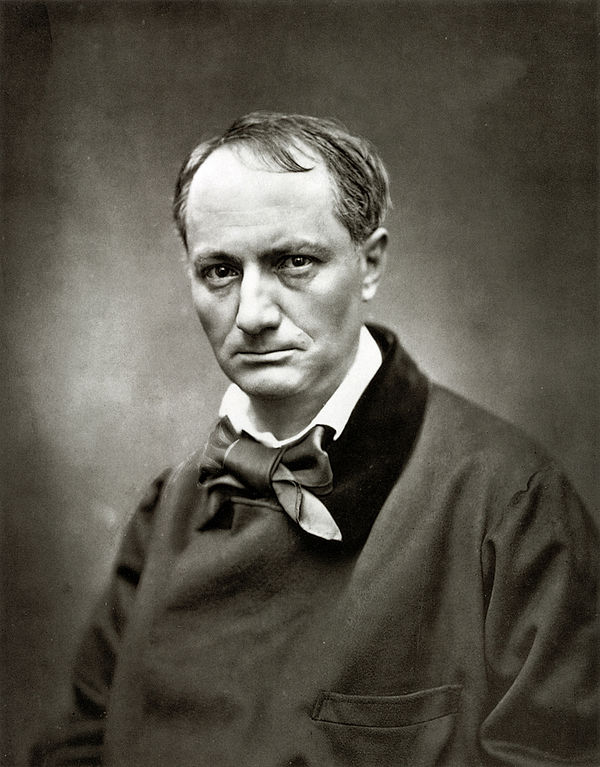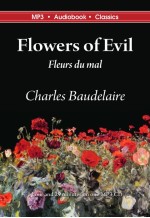Charles Baudelaire
 |
Charles Baudelaire (April 9, 1821 – August 31, 1867) was a French poet, art critic, essayist, and noted translator of Edgar Allen Poe. He was born in Paris and educated at a boarding school in Lyon. His father died when Charles was six; his mother’s remarriage was a trauma that is thought to explain the dissolute habits that began as a student in Paris. After earning a law degree he embarked upon a literary career against the wishes of his family. He largely squandered a substantial inheritance received at age 21, which led to his family putting his property in trust. He made a name in artistic circles for his bold and visionary opinions as a critic and essayist. A free-spender, a dandy, and with a mistress of mixed-race, his lifestyle estranged him from his family. In spite of poor health, emotional distress, and burdensome debts, he produced an excellent translation of Poe’s stories in 1852 and Les Fleurs du Mal in 1857. A long term user of laudanum, he produced Artificial Paradises in 1860, a book about the experiences of opium and hashish. He reconciled and lived with his mother for a time in the late 1850’s, but never overcame his chronic poverty and illness. He suffered a massive stroke in 1866 and spent the last two years of his life institutionalized in a state of semi-paralysis and aphasia. He was a major influence on French Symbolist poets Rimbaud, Mallarmé and Verlaine. Marcel Proust considered him the greatest poet of the nineteenth century. |
Flowers of Evil
The Flowers of Evil (Les Fleurs du Mal) is a collection of poems by Charles Baudelaire influential o..
$9.99

